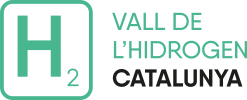The platform led by the URV presents its projects for the region’s energy transition to the Vice-President of the Catalan Government, who promises it the highest level of government support
The Plataforma Hidrogen Verd Catalunya Sud has presented its energy transition project to the Vice-President of the Catalan Government, Pere Aragonès, who has promised to give it the highest level of support and guaranteed the resources needed for an initiative which, in his words, “has all the qualities that Catalonia needs” and which “can lead the transformation that will occur across the whole of Europe”.
According to Aragonès, the Camp de Tarragona and the Terres de l’Ebre regions meet all the requirements to become the Vall de l’Hidrogen Verd del sud d’Europa, because of its capacity for industrial specialisation, because of it energy potential, because of its alliances with centres of research and knowledge transfer and with all levels of government and because of its own regional capacities”.
The event took place at the Faculty of Chemistry of the Universitat Rovira i Virgili, and was attended by the highest representatives of the institutions that, under the coordination of the URV, are promoting the project, which is intended to drive the energy transition of the region. The event was followed online by almost 100 representatives of the entities and companies that are participating in the initiative.
The platform coordinator, Jordi Cartanyà, gave a presentation to Vice-President Aragonès, in which he detailed the characteristics of a project that is intended to lead to decarbonisation and the consolidation of green hydrogen, which is obtained from renewable sources, as a territorial energy vector for facing the challenge of climate change and activating a new green economy that generates prosperity and leads to a carbon-neutral and sustainable society. Cartanyà emphasised the risk to the country if it failed to join the rush for green hydrogen because it would inevitably be left behind in the push for competitiveness, economic transformation and sustainability that the European Union has set as key objectives for 2050.
Vice-President Pere Aragonès reiterated that the Hidrogen Verd Catalunya Sud project “is a paradigm” of what is needed to be done for Catalonia, a country that, according to him, needs to be resilient and fully involved in the challenges facing the world: “we want to prosper, we want to generate high quality jobs and we want to ensure equal opportunities, and this project will assist in these aims”.
“It is in such difficult times that transformative projects such as this bring optimism and hope, and demonstrate the capacity of Catalonia to take advantage of a crisis to push forward with a transformative process”, said Aragonès. The Vice-President of the Catalan Government stated that this process will ensure the future of the petrochemical complex in Tarragona, one of the jewels in the industrial crown of the country”, a will necessarily have to undergo the decarbonisation process. “It is a project that promises to be one of the most transformative and which raises the greatest expectations. It is a positive commitment. We are completely on board and you have our full support. We need to get to work straight away, and we will, with excitement and with all of our allies”, he stressed.
Vice-President Aragonès thanked the URV for the role it has played in setting up the platform and for its “commitment to public service”. In this regard, the rector of the URV, María José Figueras, highlighted the role that the university must play as a “driver of economic, social and cultural development”, a role that has enabled it to lead a project that it regards as “key” in a territory which has always generated energy and which now needs to embrace decarbonisation and sustainability.
The rector thanked the vice-president for the support offered by the Catalan Government which, she asserted, will further strengthen the project. Figueras said how important it was that the URV had immediately been able to count on the support of the ICIQ, IREC and EURECAT; this, she said had also given extra muscle to the project and she thanked all the institutions for their collaboration. “Despite leading the project, we are not the principal actor here, instead that title goes to the businesses and industry as a whole”, Figueras asserted, satisfied that around a hundred territorial stakeholders and some thirty projects were giving real form to the platform.
Other leading figures present at the event were the president of Tarragona Provincial Council, Noemí Llauradó; the mayor of Tarragona, Pau Ricomà; Reus’ councillor for the environment, Daniel Rubio; the president of the Port of Tarragona, Josep Maria Cruset, and the president of the AEQT, Rubén Folgado, all of whom expressed the role and commitment of their institutions in the project, highlighted its transversal nature and the fact that it is a key opportunity to achieving the objectives of ensuring industrial transformation, territorial equilibrium and energy transition.
